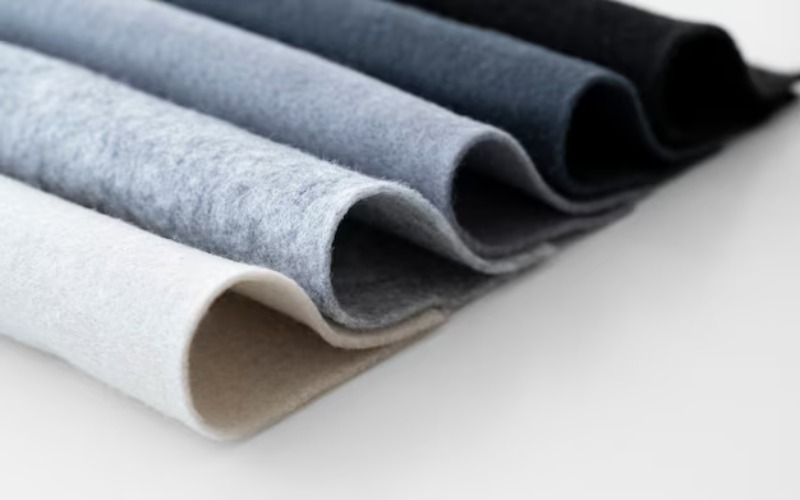Polyester is one of the most widely used synthetic fibers in the world, found in everything from clothing and home textiles to industrial products. As one of the most recognizable materials in the fashion and textile industries, polyester has garnered both praise and criticism for its versatility, affordability, and impact on the environment. In this article, we’ll dive into what polyester is, how it’s made, and weigh its sustainability for eco-conscious consumers.
What is Polyester?
Polyester is a synthetic polymer made primarily from petrochemicals. The most common form of polyester used in textiles is polyethylene terephthalate (PET), which is derived from petroleum-based products. Polyester fibers are created through a chemical process called polymerization, where chemicals such as ethylene glycol and terephthalic acid are combined under heat and pressure to form long chains of molecules. These long polymer chains are then spun into fibers, which can be woven or knitted into fabric.
Polyester can also be found in other forms, such as in the production of plastic bottles and containers, but for the purpose of this article, we’ll focus on its use in textiles and clothing.
What is Polyester Made Out Of?
Polyester, as mentioned, is made from petroleum-derived chemicals, primarily ethylene glycol and terephthalic acid. These raw materials undergo a chemical reaction in a process known as esterification, followed by polymerization. The result is a material that can be turned into fibers, sheets, or films, which are then used to create various types of fabric.
Some polyester fabrics are made from recycled materials, such as recycled PET bottles. This practice is increasingly popular as a way to reduce waste and promote sustainability within the textile industry. Recycled polyester (rPET) involves melting down plastic bottles, cleaning the material, and repurposing it into new fibers. The process requires less energy and generates fewer emissions compared to producing new polyester from raw petrochemicals, making it a more eco-friendly option in certain cases.
Is Polyester Worth the Purchase?
The answer to this question depends on several factors, including your personal preferences, the intended use of the product, and sustainability considerations.
1. Cost-Effectiveness
Polyester is relatively inexpensive to produce, which makes it a cost-effective choice for both manufacturers and consumers. Because of its affordability, polyester is often used in fast fashion, where trendy and affordable clothing is produced in large quantities. For consumers on a budget, polyester offers a wide range of options at lower prices than natural fibers like cotton, wool, or silk.
2. Durability and Maintenance
One of the main advantages of polyester is its durability. Polyester fabrics are resistant to shrinking, stretching, and wrinkling. They also tend to retain their color better than natural fibers, making them less prone to fading over time. This longevity can make polyester a good investment in terms of wear and tear, as the fabric maintains its shape and appearance even after numerous washes.
Additionally, polyester is low-maintenance. It can be machine-washed and dried, which is convenient for everyday use. This ease of care is a significant reason for its popularity in both casual and professional clothing.
3. Comfort and Breathability
On the downside, it is less breathable than natural fibers such as cotton or linen, which can lead to discomfort in hot or humid conditions. Polyester fabric tends to trap heat and moisture, making it less ideal for exercise wear or summer clothing unless it has been treated with moisture-wicking technology. Over the years, synthetic fabrics have been designed to improve breathability and comfort, but they still often fall short compared to natural alternatives.
4. Environmental Impact
The environmental impact is a major consideration when assessing whether it’s worth the purchase. As a petroleum-based material, polyester relies on fossil fuels for its production, contributing to the depletion of natural resources. Furthermore, the production process releases carbon emissions and other pollutants into the environment.
It is also not biodegradable, meaning that when it is discarded, it will not break down naturally in landfills. This contributes to the growing issue of textile waste. While recycling efforts, such as the creation of rPET, have helped reduce some of these impacts, the overall sustainability of polyester remains a concern.
To further reduce its environmental footprint, some companies are working to improve the recyclability of polyester and reduce its carbon emissions during production. Additionally, initiatives like clothing take-back programs and the development of biodegradable polyester alternatives are gaining traction.
5. The Rise of Recycled Polyester (rPET)
One of the more promising developments in the world of polyester is the rise of recycled polyester, or rPET. This material is made from repurposed plastic bottles and other post-consumer plastics, reducing waste and lessening the need for virgin petroleum resources. By using rPET, companies can produce polyester fabrics with a smaller carbon footprint and divert plastic waste from landfills and oceans. However, rPET is not a perfect solution, as it still relies on energy-intensive processes to convert plastic waste into new fibers, but it is certainly a step in the right direction.











